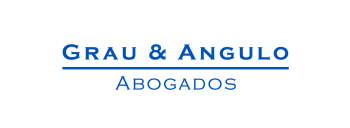On 14 June 2018 the Barcelona Court of Appeal confirmed the judgment of Barcelona Trial Court Number 4, which had sentenced the defendant for an IP crime in accordance with Article 274 of the Criminal Code. The crime in question was the commercialisation of various products which infringed the trademark rights of Futbol Club (FC) Barcelona.
For more than 15 years, the infringer commercialised various products featuring the FC Barcelona trademarks, which he acquired from an official licensee. However, in 2013 the defendant also began commercialising illicitly traded products alongside the genuine products.
The defendant did not refute the above facts. Rather, he claimed an alleged ignorance of the counterfeit nature of some of the commercialised products, arguing that he had purchased all of the products from the same official licensee with whom he had enjoyed a commercial relationship for many years.
The defendant attempted to prove his lack of criminal intent and that the subjective element of criminal liability had not been met. However, the Barcelona Court of Appeal considered that there was sufficient proof that the defendant had been completely aware of the illicit nature of some of the products that he had son sale and therefore confirmed the trial court's conclusions.
To this end, both the Barcelona Trial Court Number 4 and the Barcelona Court of Appeal considered it decisive that the infringer was an expert in these kinds of product, as he was a retailer with years of experience in this field and would have had no difficulty noticing counterfeit products. Consequently, his declarations regarding his ignorance of the counterfeit nature of the products were not considered credible and were therefore found to lack any value.
In his writ of appeal, the defendant also alleged that the trial court had erred in assessing the evidence. To this effect, the Barcelona Court of Appeal acknowledged that it is the first-instance judge's responsibility to assess the evidence provided, as they can benefit from the necessary immediacy and construct their own convictions regarding the truth of the facts and an infringer's role therein. Consequently, the role of an appeals court is merely to verify that the first-instance assessment aligns with the rules of logic and rationality. In the case at hand, the Barcelona Court of Appeal held that the first-instance judgment was adequate; as such, it ratified the trial court's conclusion.
As regards the principle of the presumption of innocence, the Barcelona Court of Appeal, availing of the Constitutional Court's consolidated case law, considered that the evidence before the trial court complied with the principles of contradiction, publicity and immediacy and was enough to undermine the presumption of innocence in this case. As such, the Barcelona Court of Appeal confirmed the trial court's inculpatory conclusions and:
- the defendant's prison sentence;
- his disqualification from standing as a candidate in elections;
- the destruction of the illicitly traded products; and
- the defendant's payment of the first-instance legal costs.
The Barcelona Court of Appeal's judgment is final.
For further information on this topic please contact Ana Ramognino at Grau & Angulo by telephone (+34 93 202 34 56) or email ([email protected]). The Grau & Angulo website can be accessed at www.ga-ip.com.
This article was first published by the International Law Office, a premium online legal update service for major companies and law firms worldwide. Register for a free subscription.



